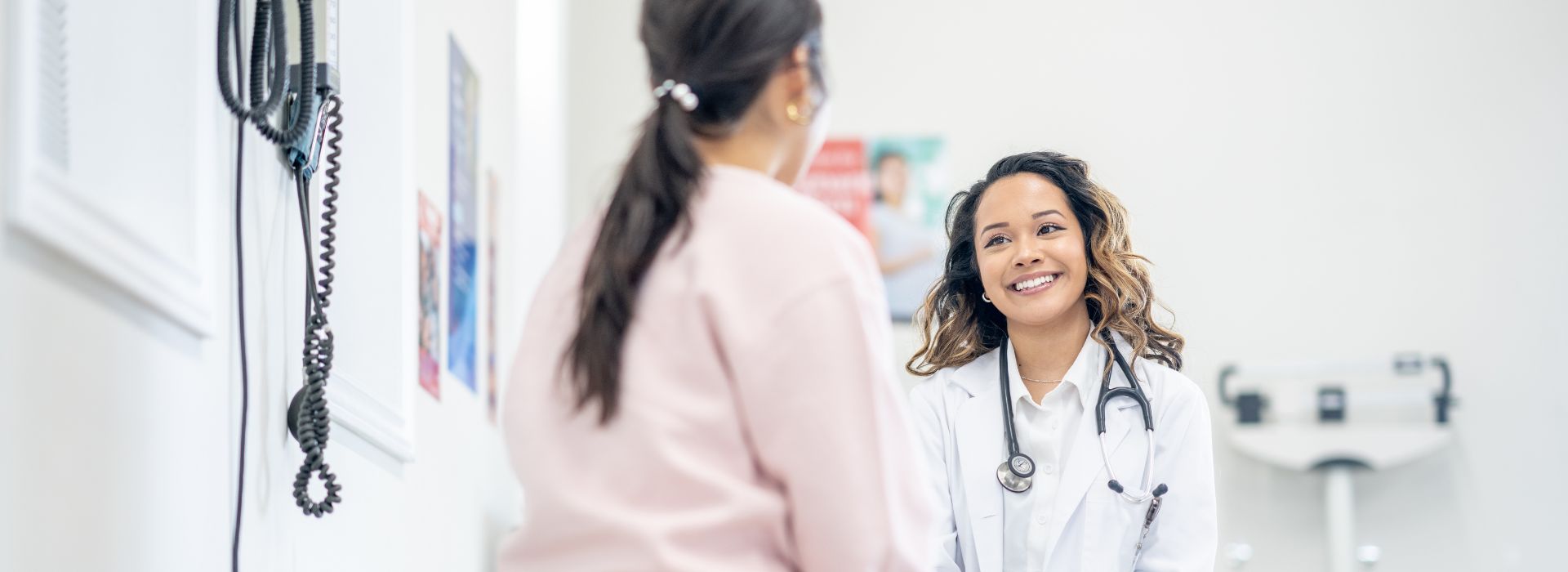A safe way to end a pregnancy at our specialist clinics.
What is a Surgical Abortion?
A surgical abortion is a safe and simple in-clinic procedure to end a pregnancy. Surgical abortion procedures are provided in our specialist clinics. It is a minor operation offered as a day-care procedure. You do not stay at the clinic overnight. How long you will be at the clinic on the day of your procedure will depend on how many weeks you have been pregnant, and your choice of anaesthetic.
Find your local NUPAS clinic that provides surgical abortions.
How does a Surgical Abortion Work?
There are different types of surgical abortion. The different procedures depend on your health, how many weeks you have been pregnant, and your personal choice.
The methods of surgical abortion offered at NUPAS are:
- Manual Vacuum Aspiration (up to 14 weeks of pregnancy).
- Dilatation and Evacuation (from 14 weeks – 23 weeks and 6 days of pregnancy).
There are also different anaesthetic options, which depend on your health, how many weeks you have been pregnant, and personal choice.
The anaesthetic options offered at NUPAS are:
- Local Anaesthetic – Awake during treatment (up to 10 weeks of pregnancy).
- Conscious Sedation – Awake but drowsy during treatment (up to 13 weeks and 6 days of pregnancy).
- General Anaesthetic – Asleep during treatment.
Types of Surgical Abortion and Anaesthetic

The duration of your stay at the clinic will depend on the type of surgical abortion procedure you undergo. Typically, you can expect to be at the clinic for about half a day. We will discuss the different types of surgical abortion with you during your consultation.
The time you'll spend at the clinic depends on the type of surgical abortion procedure you have. Typically, you should plan to be at the clinic for about half a day. We will discuss the different types of surgical abortion during your consultation.
- Do not eat solid food for 6 hours before your appointment.
- You may drink water up to 2 hours before your appointment.
- Do not smoke, chew gum, or suck sweets on the day of your appointment.
- It is strongly recommended that you refrain from smoking for 24 hours before and after your surgical abortion.
- Bring a dressing gown.
- Wear comfortable and loose clothing.
- Remove any facial and body piercings, makeup, and nail varnish.
- Remove contact lenses if you wear them and bring a pair of glasses with you.
- Arrange for a trusted person (over 18) to take you home after your appointment and stay with you for 24 hours.
If you feel unwell in the 2 days before your surgical abortion, please call us. We may need to reschedule your appointment for when you are feeling better.
What to Expect After a Surgical Abortion
After your surgical abortion, a member of the NUPAS team will walk you to the recovery area to relax. We will offer you a drink and a biscuit. Our specially trained team will look after you and monitor your recovery. We will talk to you about aftercare before you leave the clinic.
You should plan to rest and take it easy for 24 – 48 hours. We recommended that an adult companion that you trust stays with you at home for 24 hours after your surgical abortion. This is to give you support at home.
Pain Relief After a Surgical Abortion
You may have cramps that feel like period pains after a surgical abortion. You can take painkillers like ibuprofen or paracetamol to help with pain or discomfort. The best pain relief for you will depend on your medical history. Being comfortable at home with a heat pad is also effective at soothing pain.
Bleeding
It is normal to bleed for 7 – 14 days after the procedure. You may pass small blood clots for a couple of days.
Bleeding after a surgical abortion can vary from slight bleeding to as much as a heavy period. This will depend on how many weeks you have been pregnant. As a guide, base the bleeding on your own period. The bleeding should never be heavier than your heaviest period.
It’s important to use sanitary towels until your next period. Using sanitary towels will help keep track of your bleeding and prevent infection. If bleeding lasts more than 2 weeks, or if you are worried, please call our Aftercare Line.
Find out more about what to expect and how to prepare for a surgical abortion in our Abortion Guide Booklet.
Potential Risks / Side Effects of Surgical Abortion
Surgical abortions are very safe. With any medical procedure there are some potential risks and side effects. We will talk to you about this during your consultation. Please be assured that we have an excellent safety record and only employ highly qualified surgeons, anaesthetists, nurses and midwives. The risks or side effects of surgical abortion include:
Surgical Abortion Aftercare
Find out more about surgical abortion aftercare and who to contact if you’re worried about side effects or complications.
You can self-refer for a surgical abortion. Call us to book a consultation.

